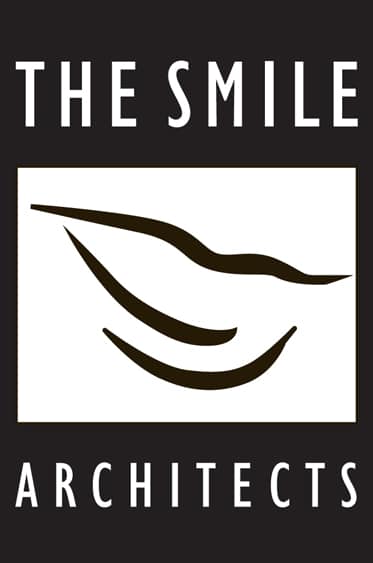We all want clean, healthy teeth, but there's a fine line between thorough brushing and brushing too aggressively. Many people believe that applying more pressure will lead to cleaner teeth, but this misconception can actually cause significant damage to your oral health. Aggressive brushing can wear down tooth enamel, irritate your gums, and lead to long-term dental problems that require professional treatment.
Understanding the signs of over-brushing and learning proper techniques can help you maintain excellent oral hygiene without causing harm. Let's explore how to recognize if you're brushing too hard and what steps you can take to protect your smile.
Signs You're Brushing Too Hard
Worn or Frayed Toothbrush Bristles
One of the most apparent indicators of aggressive brushing is a toothbrush that looks worn out after just a few weeks of use. Bristles that fan out, fray, or lose their shape quickly suggest you're applying too much pressure during your routine.
Receding Gums and Sensitivity
Gums that pull away from your teeth, exposing the root surface, often result from overzealous brushing. This recession can cause increased tooth sensitivity, especially when consuming hot or cold foods and beverages. The exposed root surface lacks the protective enamel coating found on the crown of your tooth, making it more vulnerable to temperature changes and decay.
Enamel Erosion and Its Consequences
Permanent Damage to Tooth Structure
Tooth enamel is the hardest substance in your body, but aggressive brushing can gradually wear it away. Once enamel erodes, it cannot regenerate naturally, leaving your teeth vulnerable to cavities, staining, and increased sensitivity. Erosion often appears as smooth, shiny spots on the tooth surface or small indentations near the gum line.
Increased Risk of Dental Problems
When you brush too hard, you create microscopic abrasions that provide entry points for harmful bacteria. These tiny scratches can harbor plaque and food particles, ultimately leading to tooth decay and gum disease. The damage compounds over time, potentially requiring extensive general dentistry treatments to restore your oral health.
Proper Brushing Techniques for Optimal Oral Health
Choose the Right Tools
Select a soft-bristled toothbrush that fits comfortably in your mouth and allows you to reach all areas easily. Electric toothbrushes often provide built-in pressure sensors that alert you when you're applying too much force, making them excellent choices for people who tend to brush aggressively.
Master the Gentle Technique
Hold your toothbrush like a pencil rather than gripping it tightly. Use gentle, circular motions instead of aggressive back-and-forth scrubbing. Position the bristles at a 45-degree angle toward your gum line, allowing them to clean both your teeth and the spaces where your gums meet your teeth. Apply only light pressure – the bristles should bend slightly but not flatten completely against your teeth.
Developing Healthy Oral Care Habits
The Role of Regular Dental Checkups
Regular dental checkups play a crucial role in maintaining optimal oral health and catching problems early. Professional cleanings remove tartar buildup that home brushing cannot eliminate, while comprehensive examinations allow your dentist to identify signs of over-brushing before they become serious issues.
Complementary Oral Care Practices
Beyond proper brushing technique, consider incorporating other protective measures into your routine. Use fluoride toothpaste to strengthen enamel, floss daily to remove plaque between teeth, and rinse with an antimicrobial mouthwash to reduce harmful bacteria. These combined efforts create a comprehensive approach to oral care that promotes long-term dental health without causing damage.
The Impact of Diet on Oral Health
Maintaining a balanced diet is another critical component of optimal oral health. Consuming a variety of nutrient-rich foods not only supports your overall well-being but also fortifies your teeth and gums. Foods high in calcium, such as dairy products, almonds, and leafy green vegetables, help strengthen teeth by reinforcing enamel. Similarly, foods rich in vitamin C, like citrus fruits, strawberries, and bell peppers, contribute to healthy gums by promoting collagen production and reducing inflammation. However, it’s essential to balance these choices with awareness of the potential risks posed by certain foods and beverages. For instance, when sugary or acidic items, such as candies, sodas, and even citrus fruits, are consumed excessively, they can erode enamel and increase susceptibility to cavities. By consciously incorporating tooth-friendly options into your diet, you create a strong foundation for sustained oral health.
The Importance of Hydration
Hydration also plays a vital role in protecting your teeth and gums. Drinking water, especially fluoridated water, helps rinse away food particles and bacteria that can lead to decay. Additionally, staying hydrated ensures sufficient saliva production, which is critical for neutralizing acids and maintaining a healthy oral environment. Saliva acts as the mouth’s natural defense mechanism, washing away debris and aiding in the remineralization of enamel. Chewing sugar-free gum can also stimulate saliva production, providing a supplementary benefit in maintaining a clean and balanced oral cavity. Keeping water readily available throughout the day reinforces these protective measures and complements other oral hygiene practices.
Addressing Teeth Grinding (Bruxism)
For individuals who grind their teeth, known as bruxism, addressing the habit is integral to preventing dental damage. Teeth grinding can wear down enamel, create sensitivity, and even lead to cracks or chips in the teeth. Stress and sleep disorders are common contributing factors, so managing stress through relaxation techniques like meditation or regular exercise can significantly reduce grinding incidents. Additionally, wearing a custom mouth guard at night can provide a protective barrier, preventing direct contact between the teeth and safeguarding against structural damage. Discussing bruxism with your dentist ensures that you receive tailored solutions to manage the issue and maintain your oral health effectively.
The Necessity of Professional Dental Visits
Regular dental check-ups remain a cornerstone of adequate oral care. Visiting your dentist every six months allows for professional cleanings that remove tartar buildup and plaque that you cannot address through daily brushing and flossing alone. Furthermore, routine examinations enable early detection of potential issues such as cavities, gum disease, or even oral cancer. Prompt diagnosis and treatment of these health concerns can prevent more significant complications in the future. During these visits, don’t hesitate to ask your dentist for personalized advice or demonstrations on proper brushing and flossing techniques to refine your habits and improve the effectiveness of your routine. The collaborative relationship between you and your dentist is an invaluable resource for preserving your dental health.
The Importance of Regular Dental Checkups
Routine dental visits are crucial for maintaining good oral health. These appointments allow your dentist to identify and address issues such as cavities, gum disease, or even oral cancer. Prompt diagnosis and treatment of these health concerns can prevent more significant complications in the future.
Personalized Advice for Better Oral Care
During these visits, don’t hesitate to ask your dentist for personalized advice or demonstrations on proper brushing and flossing techniques to refine your habits and improve the effectiveness of your routine. The collaborative relationship between you and your dentist is an invaluable resource for preserving your dental health.
Frequently Asked Questions About General Dentistry
How often should I replace my toothbrush to maintain good oral hygiene?
Replace your toothbrush every three to four months, or sooner if the bristles become frayed. Worn bristles are less effective at removing plaque and may indicate that you're brushing too aggressively. After illness, replace your toothbrush immediately to prevent reinfection.
What should I do if I notice signs of gum recession from aggressive brushing?
Stop brushing aggressively immediately and schedule an appointment with your dentist. They can assess the extent of the damage and recommend appropriate treatments, which may include desensitizing treatments, fluoride applications, or, in severe cases, gum grafting procedures to restore lost tissue.
We are The Smile Architects, a family and cosmetic dentistry practice serving the Huntersville, NC community since 1982. Our experienced team provides comprehensive dental care using state-of-the-art technology in a comfortable, welcoming environment. If you have concerns about your oral health or brushing technique, reach out to us to schedule a consultation.

